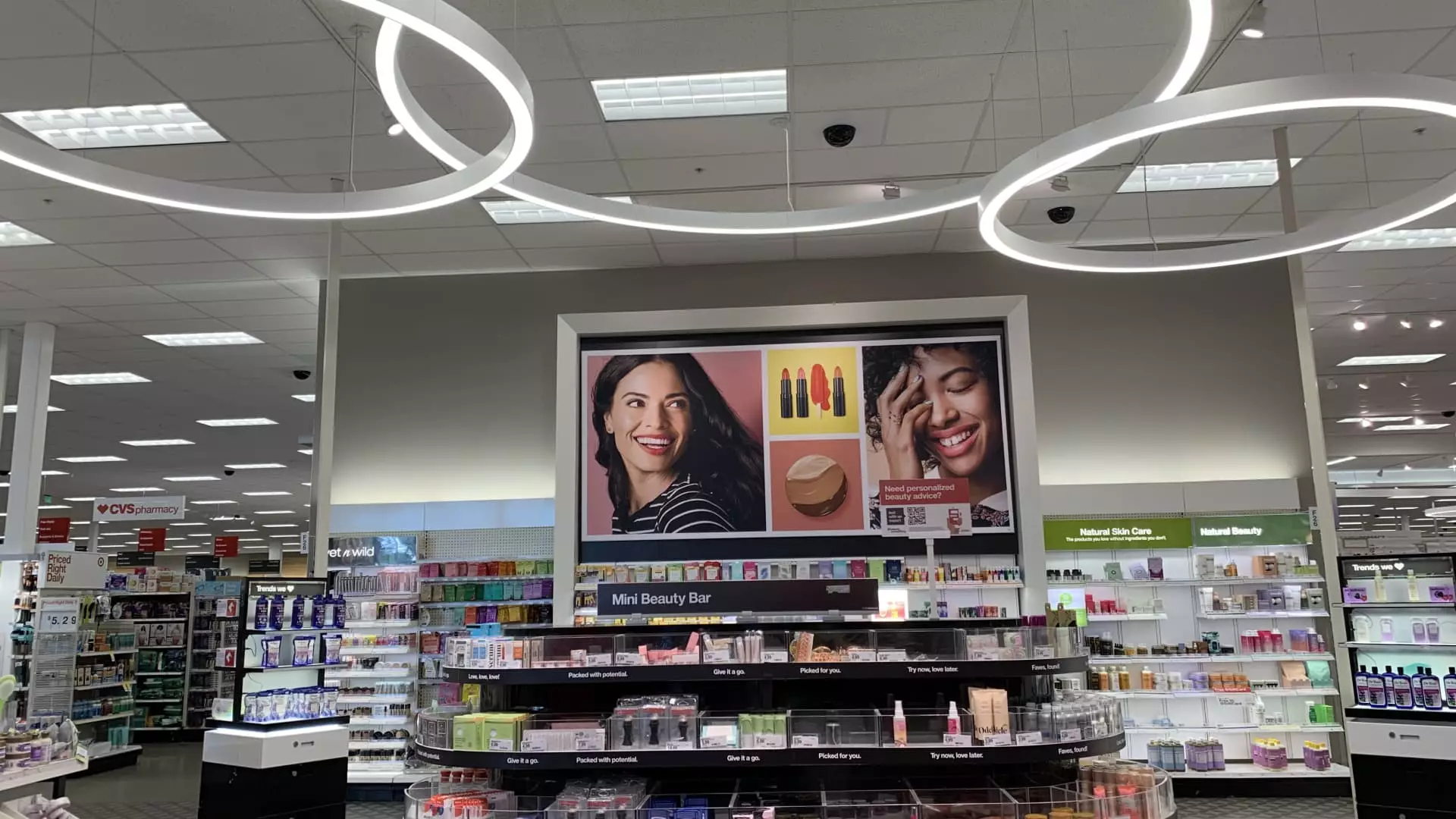The recent announcement of Ulta Beauty and Target ending their partnership signals much more than a strategic repositioning: it exposes deeper, systemic issues plaguing American retail. For years, such collaborations promised mutual growth—Target gaining trendy beauty options to entice shoppers, and Ulta expanding its reach beyond standalone stores. Yet, the dissolution highlights a harsh reality: the retail landscape has become increasingly volatile, and neither giant has figured out how to adapt effectively in a changing environment. Target’s stock dipping by approximately 2%, alongside Ulta’s decline, underscores growing investor skepticism. This isn’t just about beauty shops disappearing—it’s a reflection of broader strategic failures and a failure to meet consumer expectations in an era defined by rapid change.
The Illusion of Growth in Strategic Partnerships
Target’s leadership clearly believed that embedding Ulta within its stores would boost flagging sales and reinvigorate foot traffic. Yet, this strategy proved to be illusory. The promise of trendy beauty offerings as a long-term growth driver turned out to be a fleeting convenience. The fact that Target’s annual sales have stagnated for four years, with recent projections of decline, suggests that superficial measures—such as shop-in-shop models—are insufficient. The partnership’s ending signals an acknowledgment that such collaborations are not an infallible recipe for revitalization. Instead, they expose how fragile retail innovation can be when not rooted in a genuine understanding of consumer behavior and operational efficiency.
Operational Failings and Strategic Shortcomings
Mizuho Securities analyst David Bellinger’s critique points directly to what ails Target—”messy in-store operations,” theft, and staffing shortages. These core issues have undermined efforts to provide a seamless shopping experience, rendering even the most promising partnerships ineffective. The Ulta shops, staffed by Target employees rather than dedicated Ulta personnel, struggled to deliver the personalized experience consumers expect from a specialized beauty retailer. This fundamental misalignment reveals that retail success hinges on operational excellence, not just brand presence. The failure to execute a consistently positive in-store experience indicates a deeper mismanagement that goes beyond mere partnerships.
The Broader Implications for Retail and Consumer Culture
The impending collapse of this collaboration serves as a cautionary tale about the state of modern retail. Consumers are more empowered and selective than ever, prioritizing authenticity, expertise, and value. Expecting a giant like Target to seamlessly execute a beauty-focused strategy without addressing core operational weaknesses is overly optimistic—if not naive. Ulta’s confident assertions about their next chapter, and Target’s pretentious optimism, gloss over the painful truth: the retail sector needs a fundamental rethink. Substituting aggressive partnerships for genuine innovation is no longer sustainable; it often leads to disillusionment and a loss of consumer trust.
A Call for Thoughtful Leadership and Real Reform
The impending departure of Target CEO Brian Cornell adds a poignant layer to the story. His tenure was marked by attempts at revitalization, yet the persistent stagnation points to a lack of vision and adaptability. Future leadership must confront the fact that superficial growth strategies do not cut it anymore. Retailers need to embrace a customer-centric model rooted in operational excellence, technology integration, and authentic brand experiences. Simply partnering with trendy brands or mimicking the success of others will not carve out a sustainable future. A more nuanced, strategic approach—one that genuinely understands market trends, operational pitfalls, and consumer preferences—will be essential for survival.
The collapse of the Ulta-Target partnership underscores a larger truth: the retail sector is in a state of crisis that demands honesty, innovation, and resilience. Resting on the laurels of past successes or superficial collaborations is a recipe for continued decline. Only by critically evaluating their core weaknesses and embracing meaningful reform can retail giants hope to regain their footing and deliver authentic value in a rapidly evolving marketplace.

